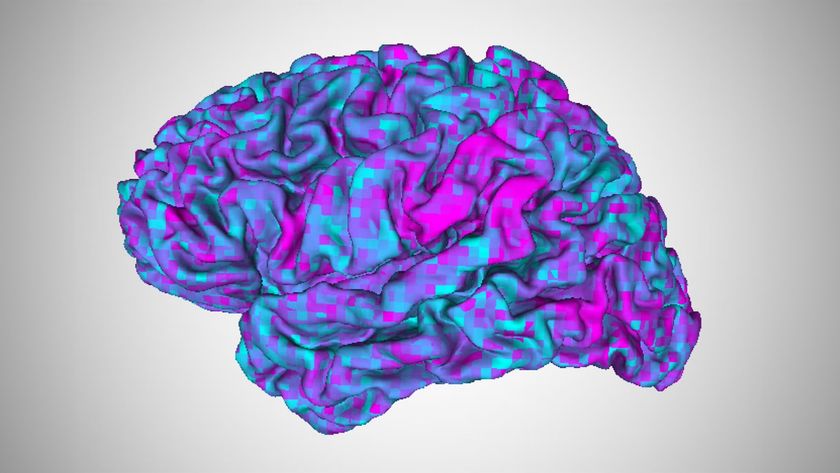The Truth About Fat Women and Self-Control

If the choice between being fat and thin were a simple, conscious decision, most of us would likely be slender. Nevertheless, new research suggests that the discrimination and prejudice faced by overweight people, especially women, are driven by the preconceived notion that body fat is somehow optional.
"Fat women experience both the stigma of unattractiveness and the stigma that they lack control," writes researcher Christine A. Smith in a new literature review published online Jan. 18 in the journal Sex Roles. It's that perceived lack of self-discipline that leads to prejudice, said Smith, of the University of Wisconsin-Green Bay.
"If people are, say, unattractive due to a facial deformity, there tends to be a sympathy factor" that mitigates discrimination against them, Smith said. But because many people think weight is controllable, "for large folks, there doesn't tend to be the sympathy factor."
Size and prejudice
In her article, Smith reviewed experimental and survey-based studies from the past two decades. Previous research has shown that overweight women tend to date less, marry less often, and earn lower salaries than thin women. However, thin, unattractive women suffer similarly deleterious economic and social effects. It's been a challenge for researchers to determine whether prejudice against heavy women is due to their weight in particular, or merely the more general diminished attractiveness associated with that weight.
Although heavy men and women alike suffer prejudice, "it appears to happen a little bit more for women," said Janna Fikkan, a clinical psychologist and researcher at the Duke University School of Medicine, who was not involved in the current research. "Women are generally judged more harshly for not meeting attractiveness standards," an age-old truth that may be changing in recent decades, Fikkan said. The gender gap would seem to suggest beauty, not flab, is causing the prejudice.
Smith agrees that women face a high beauty mandate, meaning that unattractiveness is less socially acceptable in women than in men. But compared with other appearance factors, excess weight draws extra scrutiny.
Sign up for the Live Science daily newsletter now
Get the world’s most fascinating discoveries delivered straight to your inbox.
"Fat women are deemed that they could be [attractive], but they lack the control to do so. Thus, they are perceived to be weak or out of control," she writes in her study.
Chris Crandall, a professor of social psychology at the University of Kansas, is not surprised by the study results. "This is very consistent with work I've done, and the work of many others," Crandall said. "The sense that weight is under control leads to blame, and this blame unleashes prejudice."
A rabbit hole of self-control
Sowhy does fat's perceived controllability provoke prejudice?
"In a lot of the stigmatization of fat people, the idea that they don't have control over their bodies is extrapolated into other areas of their life," Fikkan said, including at their jobs and even at home.
Despite the obvious truth that some people have an easier time managing their weight than others, from the perspective of an employer, Smith said, fat people as a group can be seen as "out of control, and who wants an out-of-control employee? I might see them as lazy." [8 Reasons Our Waistlines Are Expanding]
Worse, fat people may unintentionally come off as rebels. "Let's say you accept yourself as a large-sized person. You are violating cultural norms," Smith said."If people are confident in their deviance, that can be very threatening to the status quo."
A health ideal, too?
Thinness is an arbitrary beauty ideal; at other times and in other cultures, a plumper figure has served as a difficult-to-attain sign of wealth. But as a health ideal, thinness is intuitive, because obesity is tied to a variety of health problems. Now, although the dangers of obesity loom larger than ever, the conflation of thinness to healthiness may be unraveling.
"People argue that being overweight is unhealthy. The research on this is not quite as cut and dried. Health is blood pressure, glucose level, heart rate, the ability to climb stairs," Smith said, measures that are often, but not always, connected to body fat. "Research has found that it's better to be fat and healthy than thin and unhealthy."
(Even so, past research has shown that obese women who are metabolically healthy, meaning they have healthy cholesterol, blood-sugar levels and blood pressure, could still improve their overall health by dropping a few pounds.)
"We need to expand our idea of what beautiful is," she said. "People are suffering because we have a standard that is unattainable by most of us," and as we grow older, "eventually, by all of us."
Past research has also shown the psychological toll from this fat stigma can actually exacerbate an obese person's physical decline.
Follow LiveScience for the latest in science news and discoveries on Twitter @livescience and on Facebook.
Most Popular




